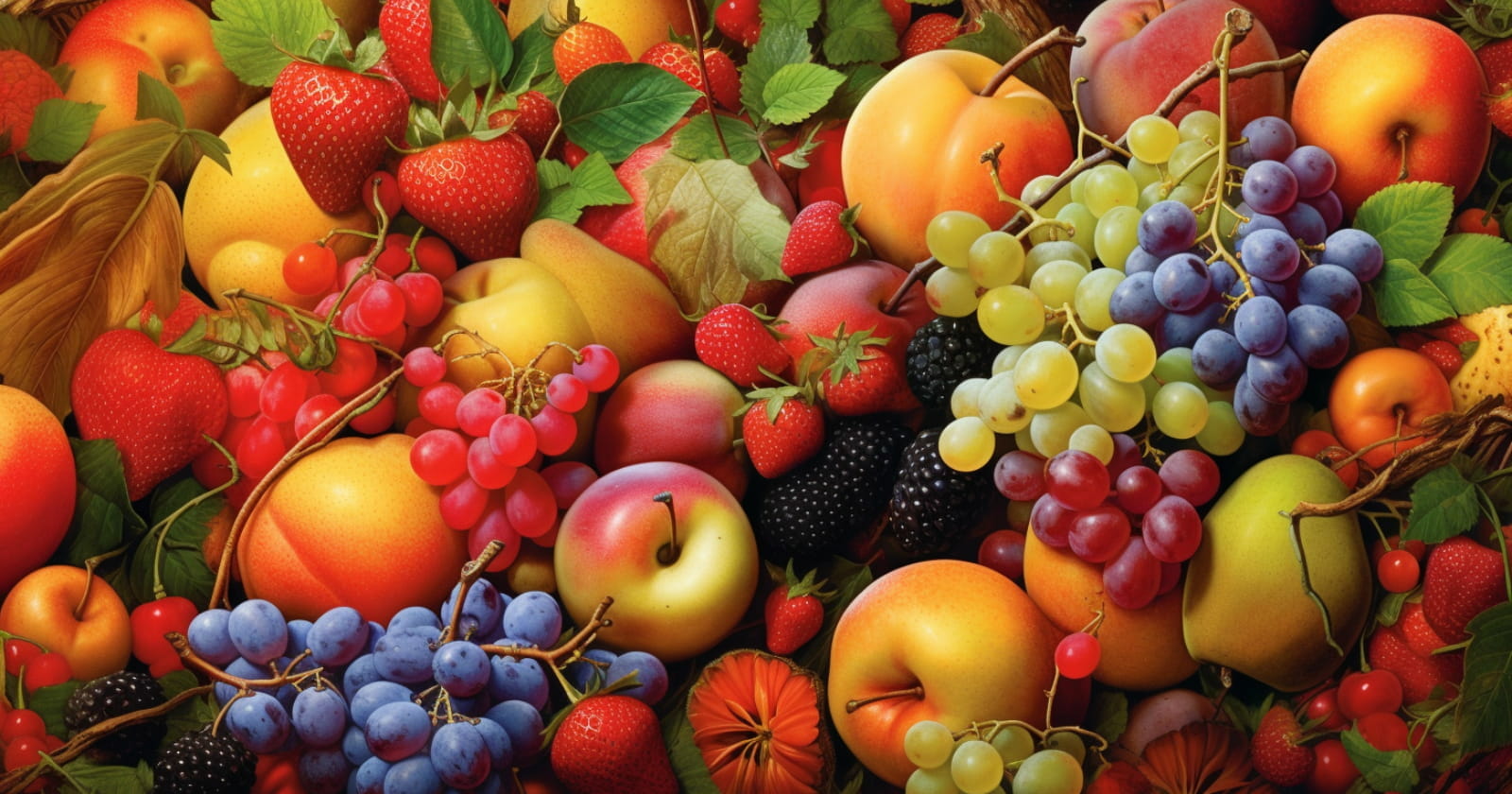You may not have heard of it, but fisetin is quickly gaining popularity in the scientific community. So, what exactly is fisetin, and why is it becoming a hot topic?
Key takeaways:
- Fisetin, naturally found in fruits and vegetables, is a flavonoid.
- With potential health benefits, including antioxidant and anti-inflammatory, fisetin holds promise for improving well-being.
- The remarkable ability of fisetin to remove old and damaged cells may slow down aging and prevent age-related diseases. However, more evidence is needed.
- Foods contain varying amounts of fisetin, such as strawberries, apples, lotus roots, onions, and tomatoes.
- While supplements offer a higher concentration of fisetin, it’s a good idea to discuss starting any new supplement with your healthcare provider.
A naturally occurring plant compound, fisetin may have numerous health benefits, including being an antioxidant, anti-inflammatory agent, and cancer fighter. Despite the encouraging data available about fisetin’s benefits, few clinical studies have been conducted in humans.
What Is Fisetin?
Fisetin is a natural substance found in fruits and vegetables. It belongs to a group of compounds called flavonoids. Flavonoids are well known for their powerful antioxidant abilities.
The first recorded mention of fisetin dates back to the 1800s when it was isolated from the Venetian sumach plant. While fisetin may have been discovered long ago, researchers have only recently begun to uncover its potential health benefits.
What Are the Health Benefits of Fisetin?
Evidence suggests that fisetin has many health benefits. Here are some potential uses of fisetin:
- Antioxidant: Fisetin is unique among plant compounds because of its exceptional antioxidant abilities. Antioxidants help protect our cells from damage caused by harmful molecules called free radicals. These free radicals can accumulate in our bodies due to pollution, stress, and other factors.
- Anti-cancer: Fisetin can potentially prevent and treat cancer by stopping the growth and causing the death of cancer cells. It has been shown to make cancer treatments more effective while reducing their side effects. However, more research is needed to understand how fisetin affects human health.
- Neuroprotective: Fisetin may improve cognitive function and help with various neurological disorders. It could reduce inflammation, support cell health, and positively impact the gut microbiome, but we still need to learn more about how well it works.
- Anti-inflammatory: Fisetin may contain anti-inflammatory properties that can reduce swelling and alleviate pain in the body. It may stop the production of inflammatory substances and help the cells remove waste through a process called autophagy.
- Senolytic: Fisetin may remove old and damaged cells in our bodies, known as senescent cells. This exciting property of fisetin may have potential benefits in slowing down aging and preventing age-related diseases. However, there’s a lack of clinical trials conducted in humans regarding the senolytic effect of fisetin.
Where Is Fisetin Found?
Scientists have discovered that fisetin can be found in various parts of plants. This flavonoid has been identified in leaves, barks, and hardwood. Additionally, fisetin can be found in certain trees and shrubs.
Fisetin is readily available in various fruits and vegetables, making it easily accessible for consumption. It’s found naturally in these plants but generally in small amounts.
What Foods Contain Fisetin?
Here are ten fruits and vegetables known for being good sources of fisetin:
- Strawberries: Strawberries contain the highest amount of fisetin among the food sources.
- Apples: Another popular fruit, apples are the next best source of fisetin.
- Persimmons: Persimmons provide a good amount of fisetin.
- Lotus roots: This unique vegetable is a nutritious option with a moderate level of fisetin.
- Onions: Commonly used in cooking, onions offer a potential source of fisetin.
- Grapes: Grapes, which can be enjoyed in various forms, have a moderate fisetin content.
- Kiwis: Kiwi fruits contain a moderate amount of fisetin.
- Peaches: Peaches provide a small amount of fisetin.
- Cucumbers: Cucumbers have a lower fisetin concentration.
- Tomatoes: Widely used in various dishes, tomatoes also contain a lower amount of fisetin.
While these foods contain fisetin, the actual amounts can vary. Enjoying a varied and balanced diet that includes a combination of these foods can help ensure you receive a good intake of fisetin and other essential nutrients.
What About Fisetin Supplements?
While food sources of fisetin typically provide an average daily intake of 0.4 mg of the flavonoid, supplements offer a higher concentration. These supplements range from 100 mg to 500 mg of fisetin.
Related: How Much Fisetin Should You Take?
The safety and potential risks of using fisetin supplements over an extended period are still unknown due to limited studies. Talk to a healthcare provider if you’re considering using fisetin supplements.
Does Fisetin Have Any Side Effects?
From the relatively small pool of clinical trials conducted on humans, there have been no reported side effects linked to fisetin thus far. In a small study, researchers gave patients with colorectal cancer 100 mg of fisetin supplements for seven weeks. No major side effects were reported during this short period.
Since fisetin supplements have not undergone extensive long-term studies, their potential effects over an extended time still need to be determined.
Is Fisetin Worth It?
Fisetin could offer important health benefits. Although more research is needed to understand how this flavonoid works, it might be worth increasing your intake of fruits and vegetables that contain fisetin or considering adding fisetin as a supplement.
It’s a good idea to talk to a healthcare professional before starting any new supplement to ensure it won’t interfere with any medications you may be taking. Their advice will help you make informed decisions about fisetin or any other supplements you’re considering.
FAQs:
Is fisetin safe?
Fisetin is generally safe when consumed from fruits and vegetables. However, the safety of fisetin supplements, which contain higher doses of fisetin, has yet to be extensively studied.
How long can I take fisetin supplements?
Studies conducted on humans are limited, and the effects of long-term use of fisetin supplements are still unknown.
Can I take fisetin every day?
While research on fisetin supplements is limited, increasing your intake of this flavonoid is generally safe by eating more fruits and vegetables that naturally contain fisetin.
Is fisetin a flavonoid?
Yes, fisetin is classified as a flavonoid, a plant compound known for its antioxidant properties. Flavonoids are naturally found in various fruits and vegetables.
Can fisetin reverse aging?
A clinical trial conducted in mice showed that exposure to fisetin could extend the lifespan of mice. However, further research is needed to determine if similar effects can be observed in humans and if fisetin can reverse aging in humans
Final Thoughts
Fisetin is an intriguing compound that shows potential health benefits. However, there’s still much to learn about it. Consider adding fisetin-rich foods to your diet. Remember that fisetin supplements should not be used as a replacement for medical treatment or advice from a healthcare professional.
Sources
- Chagas et al. 2022. Flavonols and flavones as potential anti-inflammatory, antioxidant, and antibacterial compounds.
- Farsad-Naeimi et al. 2018. Effect of fisetin supplementation on inflammatory factors and matrix metalloproteinase enzymes in colorectal cancer patients.
- Grynkiewicz et al. 2019. New Perspectives for Fisetin.
- Imran et al. 2020. Fisetin: An anticancer perspective.
- Kirkland et al. 2020. Senolytic drugs: from discovery to translation.
- Lall et al. 2016. Dietary flavonoid fisetin for cancer prevention and treatment.
- Maher. 2021. Preventing and Treating Neurological Disorders with the Flavonol Fisetin.
- National Center for Complementary and Integrative Health. 2013. Antioxidants: In depth.
- Pal et al. 2016. Fisetin and Its Role in Chronic Diseases.
- Rahmani et al. 2022. The Potential Role of Fisetin, a Flavonoid in Cancer Prevention and Treatment.
- Ravula et al. 2021. Fisetin, potential flavonoid with multifarious targets for treating neurological disorders: An updated review.
- Sari et al. 2020. Molecular and Therapeutic Effects of Fisetin Flavonoid in Diseases.
- Sun et al. 2021. Fisetin inhibits inflammation and induces autophagy by mediating PI3K/AKT/mTOR signaling in LPS-induced RAW264.7 cells.
- Yousefzadeh et al. 2018. Fisetin is a senotherapeutic that extends health and lifespan.

Maggie Aime, BSN, RN
Maggie Aime, BSN, RN is a freelance health, wellness, and medical personal finance writer. Her extensive nursing experience includes oncology, kidney transplant, cardiology, and home health. Read more about her work at www.thewritern.com.
